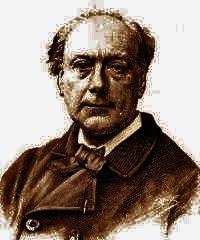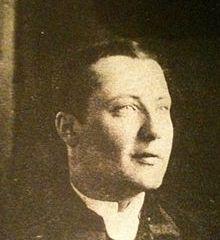William Shakespeare Quotes - Page 152

Liberty plucks justice by the nose; The baby beats the nurse, and quite athwart Goes all decorum.
'Measure for Measure' (1604) act 1, sc. 3, l. 23
'Twelfth Night' (1601) act 2, sc. 5, l. [117]
'The Taming Of The Shrew' (1592) act 1, sc. 2, l. [82]
'Coriolanus' (1608) act 1, sc. 1, l. [218]
William Shakespeare, Alexander Chalmers (1859). “The Works of William Shakespeare, Complete: Accurately Printed from the Text of the Corrected Copy Left by the Late George Steevens”, p.280
William Shakespeare (1833). “The plays and poems of William Shakspeare”, p.25
1599-1600 Jaques. AsYou Like It, act 2, sc.7, l.12-17.
William Shakespeare, Richard Proudfoot, Ann Thompson, David Scott Kastan (2000). “The Arden Shakespeare Complete Works”, p.1211, Cengage Learning EMEA
'The Merchant of Venice' (1596-8) act 1, sc. 1, l. 88
Though Fortune's malice overthrow my state, My mind exceeds the compass of her wheel.
William Shakespeare, George Somers Bellamy (1875). “The New Shaksperian Dictionary of Quotations: (With Marginal Classification and Reference.)”, p.61
William Shakespeare (1830). “The Dramatic Works of William Shakspeare: Accurately Printed from the Text of the Corrected Copy Left by the Late George Steevens ...”, p.73
William Shakespeare, Roger Warren, George Wilkins (2004). “A Reconstructed Text of Pericles, Prince of Tyre”, p.96, Oxford University Press, USA
William Shakespeare (2001). “King Lear”, p.144, Classic Books Company
William Shakespeare, Edmond Malone, James Boswell (1821). “Poems and Plays”, p.311
William Shakespeare (2012). “Comedies of Shakespeare in Plain and Simple English (a Modern Translation and the Original Version)”, p.1453, BookCaps Study Guides
William Shakespeare, Henry Norman Hudson (1871). “The Works of Shakespeare: The Text Carefully Restored According to the First Editions, with Introductions, Notes Original and Selected, and a Life of the Poet by H.N. Hudson”, p.84
William Shakespeare (2014). “Macbeth”, Simon and Schuster
William Shakespeare (1858). “Shakespeare's Comedies, Histories, Tragedies, and Poems”
A heavier task could not have been impos'd, Than I to speak my griefs unspeakable.
William Shakespeare (1836). “The works of Shakespeare”, p.292
A plague of sighing and grief! It blows a man up like a bladder.
'Henry IV, Part 1' (1597) act 2, sc. 4, l. [370]
Cease to lament for that thou canst not help; and study help for that which thou lamentest.
William Shakespeare, John Payne Collier (1853). “The Works of Shakespeare: The Text Regulated by the Recently Discovered Portfolio of 1632, Containing Early Manuscript Emendations ; with a History of the Stage, a Life of the Poet, and an Introduction to Each Play”, p.103
William Shakespeare, Thomas Price (1853). “The Wisdom and Genius of Shakespeare: Comprising Moral Philosophy--delineations of Character--paintings of Nature and the Passions--one Thousand Aphorisms--and Miscellaneous Pieces”, p.457
Grief hath two tongues; and never woman yet Could rule them both without ten women's wit.
William Shakespeare, Colin Burrow (2002). “The Complete Sonnets and Poems”, p.227, Oxford University Press on Demand






